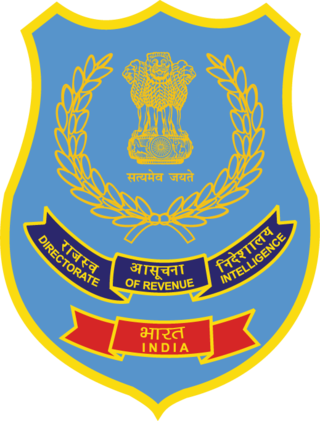Related Research Articles
A fuel tax is an excise tax imposed on the sale of fuel. In most countries the fuel tax is imposed on fuels which are intended for transportation. Fuels used to power agricultural vehicles, and/or home heating oil which is similar to diesel are taxed at a different, usually lower rate. The fuel tax receipts are often dedicated or hypothecated to transportation projects so that the fuel tax is considered by many a user fee. In other countries, the fuel tax is a source of general revenue. Sometimes, the fuel tax is used as an ecotax, to promote ecological sustainability. Fuel taxes are often considered by government agencies such as the Internal Revenue Service as regressive taxes.
Excise tax in the United States is an indirect tax on listed items. Excise taxes can be and are made by federal, state and local governments and are not uniform throughout the United States. Certain goods, such as gasoline, diesel fuel, alcohol, and tobacco products, are taxed by multiple governments simultaneously. Some excise taxes are collected from the producer or retailer and not paid directly by the consumer, and as such often remain "hidden" in the price of a product or service, rather than being listed separately.

A Finance Act is the headline fiscal (budgetary) legislation enacted by the UK Parliament, containing multiple provisions as to taxes, duties, exemptions and reliefs at least once per year, and in particular setting out the principal tax rates for each fiscal year.

The Finance Commissions are commissions periodically constituted by the President of India under Article 280 of the Indian Constitution to define the financial relations between the central government of India and the individual state governments. The First Commission was established in 1951 under The Finance Commission Act, 1951. Fifteen Finance Commissions have been constituted since the promulgation of Indian Constitution in 1950. Individual commissions operate under the terms of reference which are different for every commission, and they define the terms of qualification, appointment and disqualification, the term, eligibility and powers of the Finance Commission. As per the constitution, the commission is appointed every five years and consists of a chairman and four other members.
Taxes in India are levied by the Central Government and the State Governments by virtue of powers conferred to them from the Constitution of India. Some minor taxes are also levied by the local authorities such as the Municipality.

The Directorate of Revenue Intelligence (DRI) is an Indian intelligence agency. It is India's apex anti-smuggling intelligence, investigations and operations agency.

An excise, or excise tax, is any duty on manufactured goods that is levied at the moment of manufacture rather than at sale. Excises are often associated with customs duties, which are levied on pre-existing goods when they cross a designated border in a specific direction; customs are levied on goods that become taxable items at the border, while excise is levied on goods that came into existence inland.
Part XII of constitution of India is a compilation of laws pertaining to Finance, Property, Contracts and Suits for Republic of India.
The Gadgil formula is named after Dhananjay Ramchandra Gadgil, a social scientist and the first critic of Indian planning. It was evolved in 1969 for determining the allocation of central assistance for state plans in India. Gadgil formula was adopted for distribution of plan assistance during Fourth and Fifth Five Year Plans.
The Fifth Finance Commission of India was constituted by the President of India, Dr. Zakir Hussain, on 15 March 1968. The commission was chaired by Mahavir Tyagi.
The Sixth Finance Commission of India was incorporated in the year 1973 consisting of Shri K. Brahmananda Reddy as the chairman.
The Tenth Finance Commission of India was incorporated in the year 1992 consisting of Shri Krishna Chandra Pant as the chairman.
The Eighth Finance Commission of India was constituted by the President of India, on 28 April 1984 under the chairmanship of Shri Y.B. Chavan.
The Fourth Finance Commission of India was constituted on 18 May 1964, under the chairmanship of Dr. P. V. Rajamannar.
The Eleventh Finance Commission of India was appointed by the President on 3 July 1998 for the period 2000-2005.
The Third Finance Commission of India was appointed in 1960, for the period 1960–64, by the President of India and was chaired by Shri A.K. Chanda.
The Twelfth Finance Commission of India was appointed on 1 November 2002 to make recommendations on the distribution of net proceeds of sharable taxes between union and states. The commission was headed by veteran economist of India, C. Rangarajan. The commission submitted its report on 30 November 2004 and covered the period from 2005-10.
The First Finance Commission of India was appointed in 1951, for the period 1952-57 by the President of India and was chaired by K. C. Neogy.
The Ninth Finance Commission of India was set up in June 1987 under the chairmanship of Mr. N.K.P Salve.
The Fourteenth Finance Commission of India was a finance commission constituted on 2 January 2013. The commission's chairman was former Reserve Bank of India governor Y. V. Reddy and its members were Sushma Nath, M. Govinda Rao, Abhijit Sen, Sudipto Mundle, and AN Jha. The recommendations of the commission entered force in April 2015; they take effect for a five-year period from that date.
References
- ↑ Fifty years of fiscal federalism: Finance Commissions of India (PDF). Twelfth Finance Commission. April 2003. Retrieved 22 July 2017.
Further References
- Sansar Singh Janjua (1999). Centre State Financial Relations in India and Finance Commission. New Delhi, India: Anmol Publications. ISBN 8126102233.
- "Finance Commission India". New Delhi, India: Fourteenth Finance Commission. Retrieved 22 July 2017.